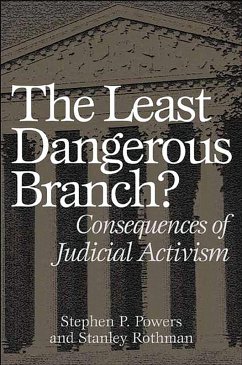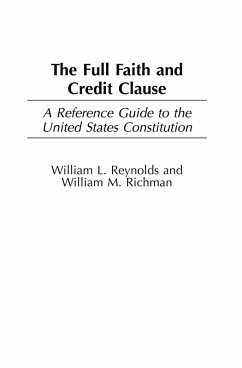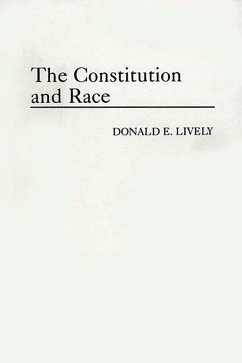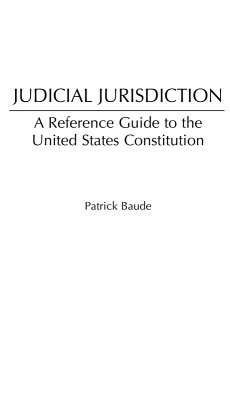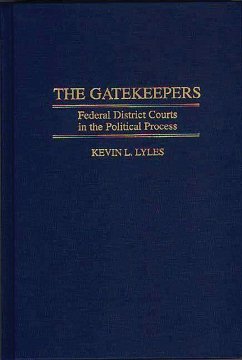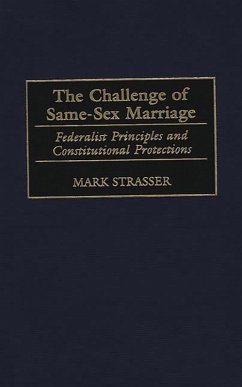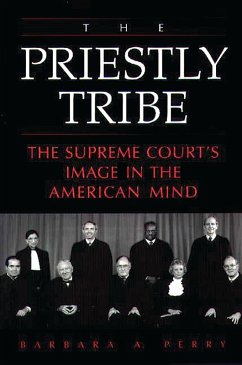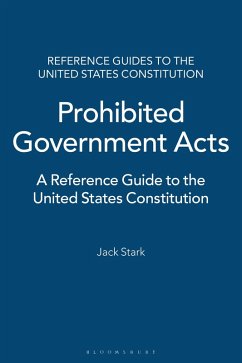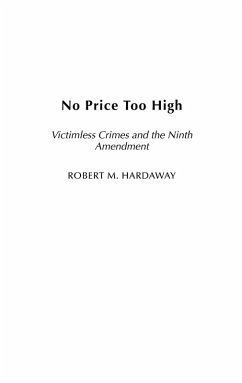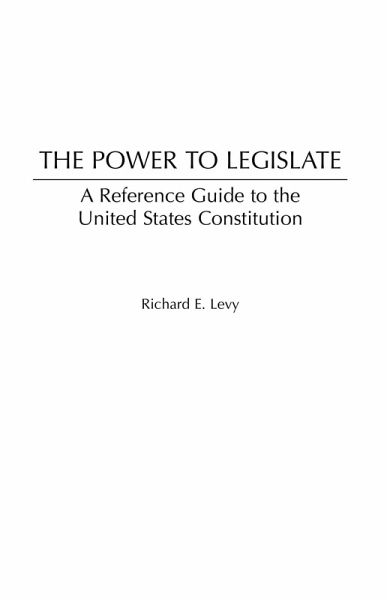
The Power to Legislate (eBook, PDF)
A Guide to the United States Constitution
Versandkostenfrei!
Sofort per Download lieferbar
58,95 €
inkl. MwSt.
Weitere Ausgaben:

PAYBACK Punkte
29 °P sammeln!
In a political climate where the machinery of the federal government has grown increasingly complex, The Power to Legislate offers a comprehensive and in-depth analysis of the extent and limitations of legislative power granted by the U. S. Constitution. By examining the historical development of the Constitution as well as judicial precedent set by the Supreme Court, Richard E. Levy develops a systematic account of federal legislative power that is ideal for anyone interested in constitutional history and political science. Levy focuses his investigation on three distinct, yet related, aspect...
In a political climate where the machinery of the federal government has grown increasingly complex, The Power to Legislate offers a comprehensive and in-depth analysis of the extent and limitations of legislative power granted by the U. S. Constitution. By examining the historical development of the Constitution as well as judicial precedent set by the Supreme Court, Richard E. Levy develops a systematic account of federal legislative power that is ideal for anyone interested in constitutional history and political science. Levy focuses his investigation on three distinct, yet related, aspects of federal legislative power: the necessary and proper clause of Article I, the delegation of powers to the various federal institutions, and the deliberative powers of Congress to conduct investigations and interrogations. The Power to Legislate synthesizes these three crucial ideas into a fresh perspective that sheds light on today's controversies.




